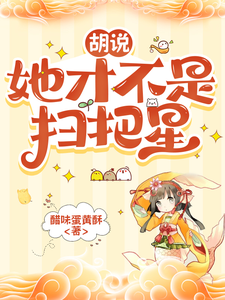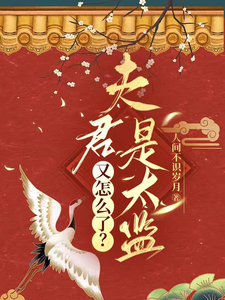Since there was nothing else to do on the boat, Shen Miao had been worrying about the journey being all expenses and no income. By the time they reached Bianjing, she would also have to take care of the original owner’s siblings—she couldn’t let them go hungry.
Now that an opportunity to earn some money had presented itself, Shen Miao was naturally tempted. She asked the young attendant, Yan Shu, a few more questions. Though the boy appeared bold and clever, he was actually quite naive, and before long, he had spilled all the details about his master, "Ninth Brother."
"We’re going to Chenzhou to visit relatives and will disembark tomorrow," he said.
"What a coincidence! My Ninth Brother is also from Bianjing. Madam, have you heard of Kaibao Temple? The Imperial Academy is right next to it. Not only did Ninth Brother pass the child prodigy exam for the Imperial Academy at a young age, but last year he was also selected for the prestigious Piyong Academy within it—and he entered as the top scorer, ranked as an Upper Hall scholar!"
Yan Shu puffed out his chest with pride, as if he himself had achieved this feat, his nose practically pointing to the sky.
A scholar? Shen Miao’s heart stirred slightly at this.
In the Song Dynasty, whether in the imperial family or among commoners, it was customary to refer to sons as "Brother," followed by their birth order. The "Ninth Brother" Yan Shu spoke of was likely his young master.
And since he was still called "Brother," he probably hadn’t yet come of age.
The Imperial Academy in the Song Dynasty held a status no less prestigious than Tsinghua or Peking University in modern times. Moreover, from the original owner’s memories, the academy only admitted the sons of capital officials, and the selection criteria were extremely strict. It seemed her neighbor was not only young but also had a bright future ahead.
At least he came from a respectable family. And since they’d be leaving the boat tomorrow, earning a meal’s worth of money without any lingering complications was a good deal. Shen Miao felt somewhat reassured. Besides, the fact that "Ninth Brother" had raised his attendant to be so plump and innocent suggested his family was well-off and kind-hearted.
After a moment’s thought, Shen Miao agreed. She opened her door, settled the price with Yan Shu, and asked how much grain they had and what dishes they’d like. Hearing they had brought finely milled wheat flour, she smiled and asked, "I still have some dried shiitake mushrooms and cured pork. How about I make your Ninth Brother a bowl of shiitake pork sauce noodles? If there’s time, I could also steam a basket of mushroom buns. What do you think?"
Yan Shu had initially wanted her to make that fragrant "eggplant rice" again, but remembering Ninth Brother’s current melancholy state, he thought a warm bowl of noodles with steamed buns would be more comforting. So he readily agreed and even briskly returned to his room to fetch a bag of wheat flour for Shen Miao.
"Then we’ll trouble you, Madam," Yan Shu said with a formal bow before taking his leave.
Shen Miao closed the door, weighed the ten copper coins of advance payment in her hand, and glanced at the small bag of snow-white flour at her feet. She thought happily, This is great—not only am I earning money, but I’m also saving a bit on food!
She had agreed with Yan Shu to deduct five coins from the labor fee and make three bowls in total, so she could have one herself.
It wasn’t that she was being stingy—it was just that this kind of flour, so common in modern times, required countless siftings in the Song Dynasty and cost thirty coins per peck. Only the children of officials and noble families could afford it. Ever since transmigrating, Shen Miao had suffered under Granny Rong’s abuse in the woodshed, surviving on a single dry biscuit a day. After escaping, she had been frugal, cooking only with millet and coarse rice. How she missed the chewy, smooth texture of a proper bowl of noodles!
Since Yan Shu had provided the expensive flour, Shen Miao decided to contribute her own ingredients—shiitake mushrooms, vegetables, and pork. The rest of the cost covered firewood, water, and her labor. Three bowls totaled fifty coins, with Yan Shu paying ten in advance.
The young attendant had been so generous and straightforward that Shen Miao resolved to put her best effort into making this meal.
It was still early, so she had plenty of time to prepare.
She gave up on sleep, took out two coarse cloth armbands from her trunk, and tied up her sleeves to knead the dough and simmer the sauce.
The "shiitake pork sauce noodles" were essentially what modern people would call braised noodles with mushroom and minced pork—not complicated, but kneading and resting the dough took time, as did soaking the mushrooms and simmering the meat sauce.
Speaking of shiitake mushrooms, the Song Dynasty was prosperous, and the people lived stable lives. Mushroom cultivation was widespread, especially in Jinling, where nearly every household grew fungi in small plots behind their homes. Before leaving, Shen Miao hadn’t forgotten to harvest every last shiitake from the plot the original owner had carefully tended behind Granny Rong’s house—not a single one was left for that wretched old hag!
Using mushrooms for "mushroom buns" was the most common practice at the time.
In this era, "steamed buns" (mantou) actually referred to what modern people called baozi—round and stuffed. The real "steamed buns" of the Song Dynasty were the strip-shaped "steamed cakes" (chuibing) sold by figures like Wu Dalang.
Mushroom buns, then, were essentially pork and shiitake baozi.
They were incredibly popular. The famous gourmet Su Shi once traveled a long way with two friends just to eat them. Afterward, he was so impressed that he left what might be considered an ancient food review, writing in a poem:
"The world’s most exquisite bamboo shoot cakes,
The finest mushroom buns under heaven."
In modern terms, this roughly meant: "These mushroom buns are absolutely divine!"
Shen Miao decided to start with the meat sauce for the noodles.
Braised noodles were a specialty of Henan cuisine, with the soul of the dish lying in the rich, fragrant broth. In modern times, Shen Miao would have used tender lamb and lamb bones, simmering them for at least five hours until the broth turned milky white. Then she would hand-pull the noodles into wide, thin strips, blanch some vegetables separately, layer them at the bottom, drizzle with chili oil, and serve with a side of sweet garlic. The flavor would be so good it could "make your eyebrows fall off."
Unfortunately, she didn’t have the time or ingredients for that now.
Still, noodles braised with shiitake and pork sauce had their own charm.
Though pork was cheap, Shen Miao worried the piece she had bought might spoil if left too long. She had cooked some at noon and decided to use the rest generously. She deftly separated the fatty skin from the lean meat, cutting the latter into pea-sized cubes. After soaking the mushrooms in warm water fetched from the boiler room, she moved the earthenware pot to a small clay stove and rendered the fatty skin into lard until it crisped into cracklings.
She set the cracklings aside for the buns.
While the pot was still hot, Shen Miao added the lean pork cubes, stirring until they browned. Cooking in earthenware was tricky—it stuck easily—but she was skilled at the stove, using chopsticks to flip the meat quickly. A slight char only deepened the flavor. Next, she added the rehydrated and diced shiitake, followed by scallions, garlic, star anise, and a spoonful of homemade pickled ginger chili paste. The spicy aroma bloomed, and she finished it off with soy sauce, vinegar, salt, and Sichuan peppercorns.
Ideally, she would have added black pepper, but in the Song Dynasty, pepper was exorbitantly expensive—several strings of cash per pound. A bolt of fine silk might only buy a small bag. Someone like Shen Miao couldn’t even find a place to buy it. So she substituted Sichuan peppercorns and added another secret ingredient: fermented broad bean paste.
When Shen Miao went to buy a kitchen knife, she noticed a shop selling fermented bean paste and was surprised to find such a variety of condiments and sauces already available in the Song Dynasty! After tasting a few spoonfuls and finding it delicious, she bought a small jar. Now it came in handy—adding a heaping spoonful of the bean paste gave the mushroom and meat sauce its soul. She then poured in two ladles of the water used to soak the dried mushrooms, and the sauce was nearly ready.
Wiping sweat from her brow, Shen Miao used fire tongs to remove a few pieces of charcoal from the stove, then added a pinch of sugar and sesame seeds to the earthen pot. She switched to a low flame, letting the sauce simmer slowly until it thickened into a rich, reddish-brown glaze, releasing an aroma almost identical to what she remembered from modern times.
The scent alone made Shen Miao’s mouth water—it was irresistibly fragrant!
While the meat sauce bubbled on the stove, she began kneading dough.
Kneading was an art in itself.
But Shen Miao had learned it at the age of five. While other children took piano or dance lessons, she practiced cutting tofu and kneading dough... By the time she was seven or eight, her parents had handed over the responsibility of cooking three daily meals to her. By middle school, she could single-handedly prepare the New Year’s Eve feast.
For hand-pulled noodles, lukewarm water had to be added gradually to the flour, stirring until it formed a crumbly texture before quickly kneading it into a smooth dough. This step was crucial—if delayed, the warmth of her hands would cause premature fermentation, ruining the texture. Shen Miao also added a pinch of salt, the secret to achieving springy, chewy noodles.
Once kneaded, she covered the dough with a damp cloth to let it rest for about fifteen to thirty minutes.
Afterward, she rolled it into a long strip and sliced it into finger-width noodles.
With the noodles prepared, Shen Miao took a sip of water and rested briefly before moving on to the vegetables. She had brought along a head of baicai—modern-day cabbage. This variety, known as baisong, was said to have been cultivated in Yangzhou during the Tang Dynasty: "Round, large leaves, crisp and tender without fiber, suitable for all seasons, and excellent when pickled."
It had since become a staple among common folk.
Interestingly, Shen Miao’s childhood nickname had been Song Song. Her mother had eaten a plate of spicy pickled cabbage just before going into labor, prompting her father to suggest naming the baby "Spicy Cabbage." Her mother had smacked him for the idea, but they eventually settled on the more elegant alternative.
Besides cabbage, she had also packed two radishes, spinach, cucumbers, and cilantro—half her luggage was food. Though all vegetables, there was a saying: "Winter snow blankets the wheat fields, spring rain enriches the greens." Fresh spring vegetables were cheap and abundant, and the cool weather allowed them to keep for days in a shaded spot.
Still, Shen Miao hadn’t overstocked—if the canal boat docked along the way, she could always buy more.
She sliced half a radish into thin strips—spring radishes were exceptionally crisp and sweet—then shredded some cabbage and cucumber. The cilantro was finely chopped and served separately, since the age-old debate over its appeal had never ceased, past or present.
With that, her "Braised Noodles with Mushroom and Meat Sauce" was nearly ready.
Since it was still early, Shen Miao decided to make stuffed buns. She had intentionally set aside some mushrooms and meat, which she now mixed with minced pork cracklings to create a fragrant filling, enough for three buns. By the time she finished shaping them and steaming them over the pot, dusk had fallen.
After washing the earthen pot, she boiled water to blanch the vegetables and noodles, then combined them with the meat sauce, adding the rich broth from simmering the sauce. A sprinkle of scallions completed the dish. Shen Miao couldn’t resist tasting a bite—the noodles were perfectly springy, soaked in the savory sauce, leaving her lips tingling with umami.
Success. No disaster here.
She portioned out a bowl for herself, wrapped the steamed buns in oiled paper, then carried the entire pot next door. When she arrived, only Yan Shu was inside. The cabin rooms were nearly identical, except that Ninth Brother’s space was cluttered with old, tattered books.
Shen Miao didn’t enter. Setting down the food and collecting the remaining payment from Yan Shu, she bent slightly with a smile and reminded him, "You and Ninth Brother should eat while it’s hot, or the noodles will clump."
Then she left.
Yan Shu had been entranced by the aroma wafting from next door. Now, he stared wide-eyed at the steaming pot of noodles, circling it like a restless cat before finally leaning over the table to inhale deeply, saliva pooling in his mouth faster than he could swallow.
Anxiously, he glanced at the door—Ninth Brother had gone to the latrine. Why wasn’t he back yet?
Luckily, the door soon creaked open. A plainly dressed young scholar in a blue robe wandered in absentmindedly, wearing cloth shoes—one of which bore the clear imprint of a half-footprint.







